Key Takeaways
Foreign currency accounts are essential if you regularly send or receive payments in specific foreign currencies, as they help save on conversion fees and minimize exchange rate risks.
Most major banks and fintech companies offer foreign currencies for US-based individuals and businesses, each with different stand-out features and account opening processes.
Some factors to consider when opening a foreign currency account include the supported currencies, the type of exchange rate, and card availability.
If you travel often or make frequent transactions in foreign currencies, you might find it challenging to keep track of favourable exchange rates and your money in transactions.
A foreign or multicurrency account can simplify your cross-border payment process, allowing you to handle funds in multiple foreign currencies in one account, reduce conversion fees, and minimize foreign exchange risks.
This article covers everything you need to know about opening a foreign currency account in the US, including the options for account providers, to help you make the right choice.
💡 Tip: Read our detailed guides to learn more about a foreign currency account and how it works.
Pros and Cons of Foreign Currency Accounts
Foreign currency accounts are advantageous for individuals and businesses who frequently send and receive payments internationally in currencies other than USD, such as euro (EUR), British pound (GBP), Hong Kong dollar (HKD), or Japanese yen (JPY). However, not everyone may need this feature besides a regular bank account.
If you regularly make transactions in foreign currencies, here are the pros and cons of multicurrency business accounts you should consider.

Pros
- Convenience: Enables quick and easy international payments from one account.
- Flexibility: Offers the ability to convert foreign currencies at any time.
- FDIC Insurance: Most providers, especially banks, offer FDIC-insured accounts, ensuring the safety of deposits.
- Savings on Conversion Fees: Reduces currency conversion fees by holding and spending in the same currency.
- Currency Risk Management: Facilitates holding funds in the currency of your choice, reducing currency fluctuation risks.
- Interest Earnings: Some foreign currency accounts allow you to earn interest on deposits, enhancing potential returns.

Cons
- Various Fees: Accounts may have higher maintenance fees, minimum balance requirements, or transaction fees that can add up.
- Limited Availability: Not all banks in the US offer foreign currency accounts, and some may only provide them to corporate clients.
- Interest Rate Disparity: Foreign currency accounts may offer lower interest rates than USD savings accounts.
💡 Tip: Payment service providers, such as PayPal and Stripe, are a more cost-effective solution if you only occasionally send payments abroad in foreign currencies.
What Do I Need to Open a Foreign Currency Account?
Similar to when opening other regular bank accounts in the US, you will typically need to provide the following information and documents when applying for a foreign currency account:
- Proof of Identification: Government-issued photo IDs such as a passport, driver’s license, or state ID card
- Personal Information: Including name, address, date of birth, and contact information
- Proof of Address: Documents verifying your current address, such as a utility bill, lease agreement, or bank statement
- Social Security Number (SSN) or Individual Taxpayer Identification Number (ITIN): U.S. citizens and residents typically must provide their SSN. Non-residents who do not have an SSN may need to provide an ITIN.
- Additional Documents for Businesses: You may have to provide additional documents, such as a certificate of incorporation or business license, to open an account for business purposes.
- Initial Deposit: Some foreign currency accounts require a minimum opening deposit.
It is crucial to note that the required documents, eligibility, and initial deposit vary between banks or financial institutions. We recommend checking with your provider for accuracy.
How to Open a Foreign Currency Account in the US
The account opening process for a foreign currency account in the US will depend on your chosen provider. However, it usually involves the following steps:
Step 1 - Research and Choose the Right Account
The first step to opening a foreign currency account is to research and choose the right type of account that fits your needs.
When considering your options, you may want to evaluate several factors, such as
- Multi-user access: Determine if you need the function for multiple users to access the account.
- Supported currencies: See if the account supports the currencies you mainly send or receive.
- Currency conversion rates: Consider the types of conversion rates offered and how they might affect your transactions.
- Cash withdrawal capabilities: Check if you can easily withdraw cash and if there are any associated foreign transaction fees.
- Card availability: See if the account provides a credit or debit card and the charges for international spending.
- Account type: Decide whether a current or savings account suits your financial needs better.
Additionally, some banks or providers offer multi-currency accounts that allow you to hold multiple currencies in addition to USD, which may be more suitable for businesses with customers in many countries.
Step 2 - Check Your Eligibility
Depending on your purpose, you will have to choose between a personal and business account. You can only open a foreign currency account at some bank if you are a registered company in the US.
Most providers also require you to be over 18 years old to open a foreign currency account.
🔍 Tip: Find out why you should separate your personal and business accounts.
Step 3- Apply for an Account
After you’ve decided on a bank or a provider, the next step is to apply for an account.
The account application process will be different depending on your chosen financial institution. If you open an account with a traditional bank, you may need to visit a branch to complete the process.
On the other hand, most non-bank financial service providers allow you to open a foreign currency account online in a few steps.
⚠️ Important: Some providers may require an initial deposit to cover a minimum balance requirement and monthly maintenance fees when opening an account.
Step 4 - Activate Your Account
After successfully opening your foreign currency account, most account providers will send a payment card to your registered address.
Depending on different banks and providers, you might have to take an extra step to verify that you are an account holder, or you can start using your account right away.
Best Foreign Currency Accounts in the US
There are multiple options for foreign currency accounts in the US. If you are looking for a traditional way to bank and prefer in-person customer support, consider opening an account with banks like HSBC, EverBank, or Wells Fargo. However, most major banks only offer corporate or enterprise clients foreign currency accounts.
On the other hand, if you prefer more affordable and digitally convenient alternatives, consider fintech companies or neobanks such as Payoneer, OFX, and Wise.
Here are some of the best options for foreign and multicurrency accounts in the US.
Wise
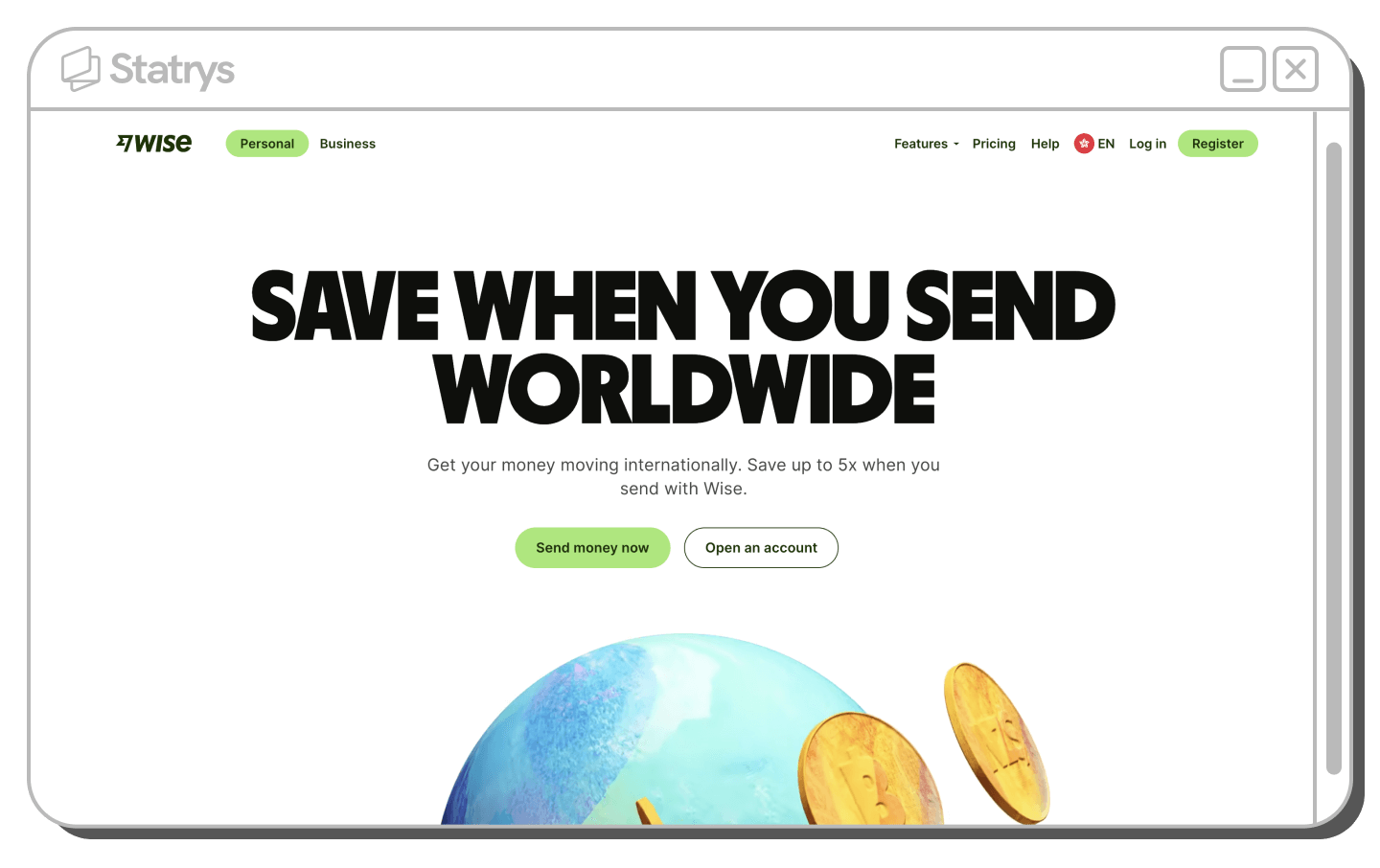
Wise (formerly TransferWise) is a fintech company headquartered in London. Launched in 2011, it offers digital payment solutions for international clients worldwide, including the US, primarily focusing on global payments.
Key Features: Local bank account details in 10 major currencies, business debit cards, and support transfers to AliPay and WeChat Pay.
Supported Currencies: Over 40 currencies, including GBP, EUR, AUD, NZD, HKD, and SGD
Fees: Free to open with no initial deposit
Exchange Rate: Mid-market rate
Types of Accounts Available: Business and personal
🔍 Interested in Wise? Find out how to open a Wise account in our detailed guide, including the eligibility, cost, and necessary documents.
Payoneer
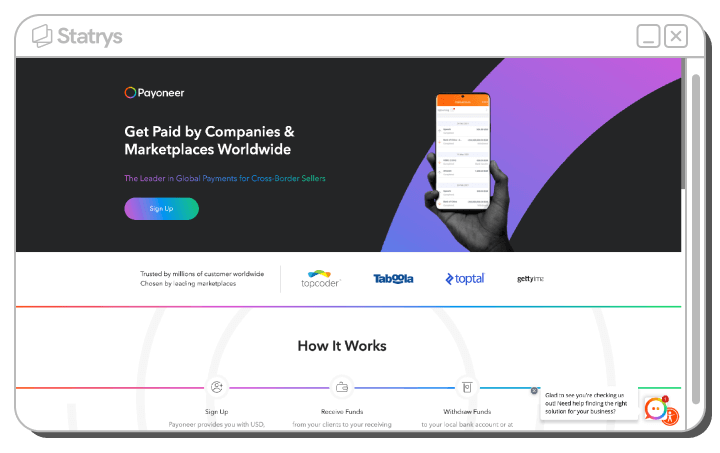
Payoneer is a global payment platform providing services for freelancers and businesses, including foreign currency accounts, a mass payout platform, and payment gateways. Headquartered in New York, Payoneer operates in 25 offices worldwide and offers services in multiple locations.
Key Features: Multi-currency accounts with local bank details in 10 locations, including Hong Kong, Singapore, Australia, Canada, the UAE, the UK, and the US.
Supported Currencies: 10 currencies, including the Canadian dollar (CAD), Singapore dollar (SGD), and Australian dollar (AUD)
Fees: USD 29.95 annual fee (depends on account usage)
Exchange Rate: Based on the mid-market rate with a 0.5% fee
Types of Accounts Available: Business
💡 Tip: Explore Payoneer’s features and fees in detail in our Payoneer Business Account review.
HSBC
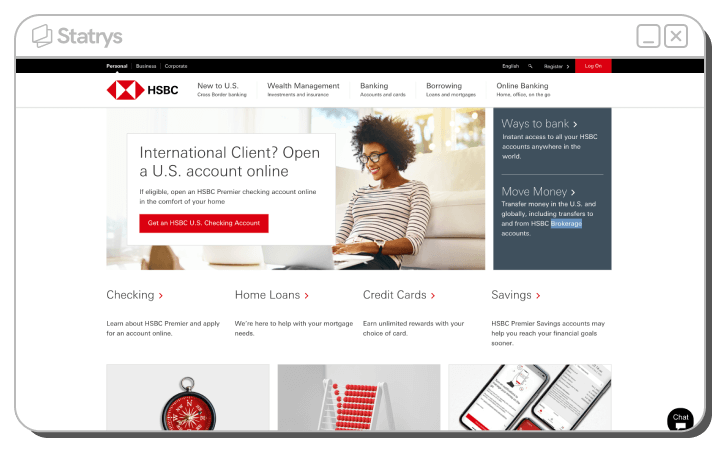
HSBC is one of the largest banking institutions in the world. US-based customers can benefit from the HSBC Global Money Account. However, this account is only available for clients with existing HSBC checking or savings accounts, and you can only send money to your own or other HSBC accounts.
Key Features: Convert and hold cash in multiple major currencies, FDIC-insured deposits, and competitive real-time FX rate.
Supported Currencies: 7 currencies, including AUD, CAD, EUR, GBP, HKD, SGD, and USD
Fees: No monthly fee
Exchange Rate: Real-time mid-market rate
Types of Accounts Available: Personal (must have an existing HSBC account)
EverBank
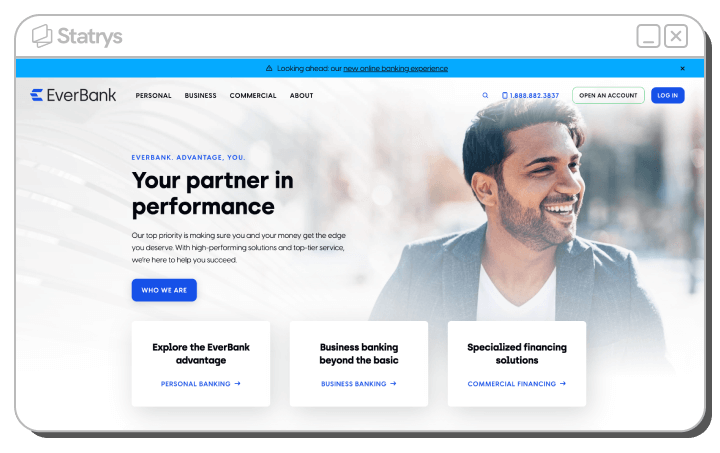
EverBank, formerly TIAA Bank, offers Access Deposit Accounts and Single-Currency Certificates of Deposit (CDs) for individual and business clients in the US. Based in Florida, EverBank deposits are insured by the FDIC.
Key Features: Convert and hold money in multiple currencies of your choice, with an option for an automatic purchase plan.
Supported Currencies: 20 currencies, including AUD, GBP, JPY, HKD, and SGD
Fees: Minimum initial deposit of USD 2,500 or USD 100 monthly purchase plan
Exchange Rate: Not specified
Types of Accounts Available: Personal and business
Wells Fargo
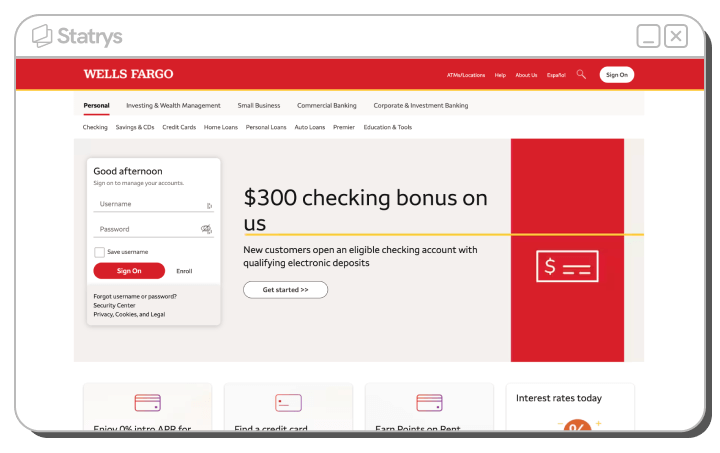
Wells Fargo is an FDIC-insured bank based in San Francisco, offering various financial services to individuals and companies, including multi-currency business accounts. It is one of the biggest banks in the US by assets, with numerous branches and ATMs nationwide.
Key Features: Send and receive secured wired transfers from all over the world, including through the SWIFT network.
Supported Currencies: 28 currencies (not specified)
Fees: Not specified
Exchange Rate: Live market rates
Types of Accounts Available: Business
📌 Have you used any of these providers?
We’d love to hear what you think about them! Share your opinion in our short survey and get a reward for your time.
Bottom Line
Foreign currency accounts make global transactions more convenient with the ability to hold, convert, and manage money in multiple currencies apart from USD. There are several options available for opening a foreign currency account in the US, depending on your needs, including the number of currencies you use most frequently.
Although each bank and provider has a different application process, with thorough preparation, you should be able to choose and open a foreign account that streamlines your global payments.
If you have a company registered in Hong Kong, Singapore, or the BVI or are looking to expand into the region, Statrys is another efficient option. With a Statrys business account, you can hold and manage 11 major currencies, track your SWIFT payments in real-time, and benefit from our dedicated multi-lingual customer support team.
FAQs
Why do I need a foreign currency account?
Foreign currency accounts help you manage international transactions efficiently, save on conversion fees, and mitigate exchange rate risks.








